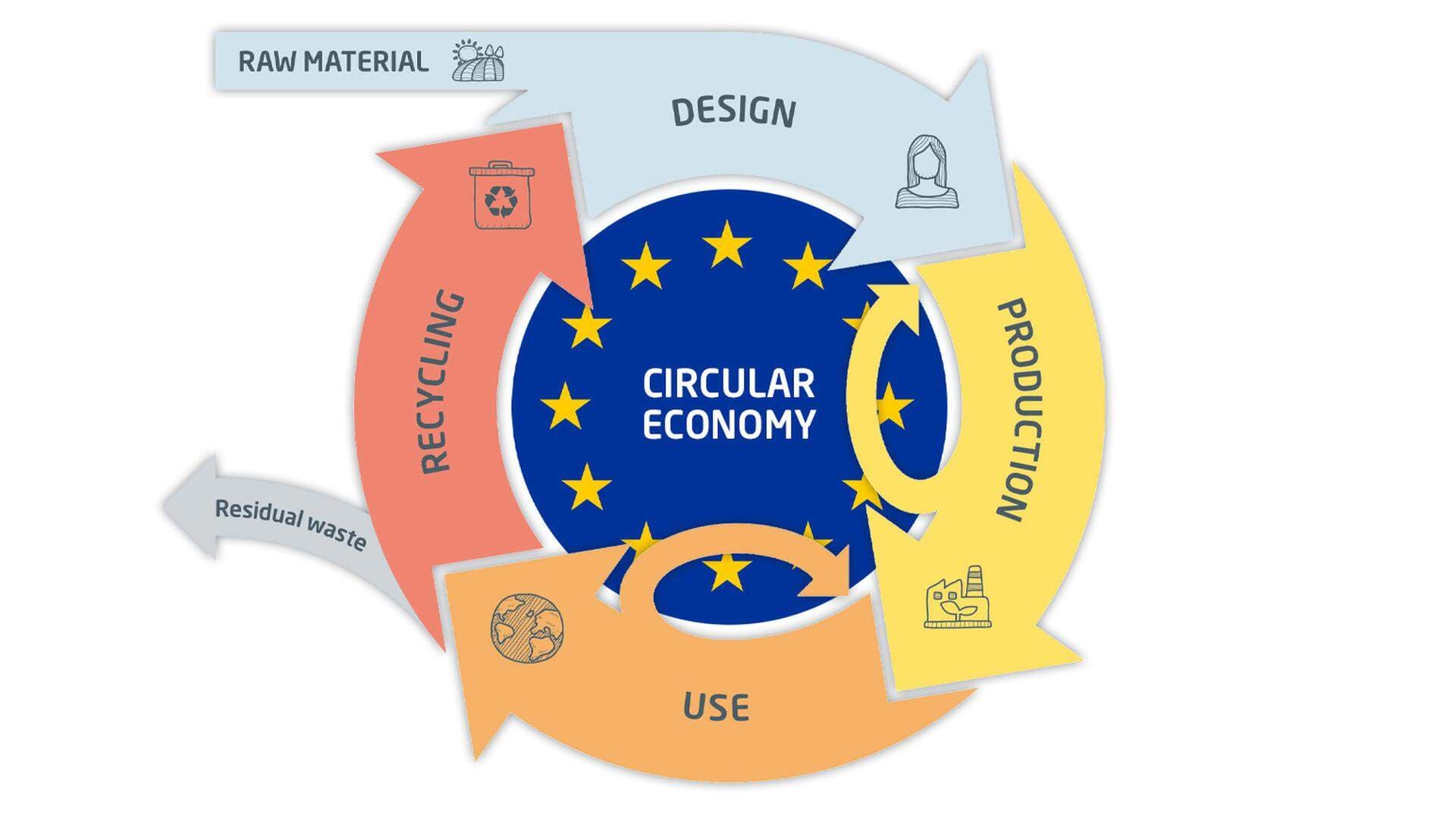How to ensure sustainability and circularity in future product and material cycles
On 16 June, the Confederation of Swedish Enterprise, together with its Nordic sister organisations, organised a webinar on the theme of how to ensure sustainability and circularity in future product and material cycles. During the webinar, the Nordic business confederations also presented a joint position paper.

The webinar was in two parts; the first discussed the Sustainable Products Initiative. Paola Migliorini, Deputy Head of the Unit for Sustainable Production, Products and Consumption, at the European Commission’s Directorate-General for Environment, began by stressing the importance of increased dialogue with stakeholders, particularly for proposals as complex as the forthcoming product policy.
– Today’s production and consumption is not sustainable, for several reasons. The main issue is that the design process does not take into account the impact of a product on the environment or the production conditions throughout its lifetime.
Migliorini continued by highlighting that it is difficult for consumers to make informed choice, and that there is a need for greater access to information along value chains.
– We need to develop common sustainability principles and create a framework to promote good choices, but this needs to be done on a product-by-product basis and in close cooperation with all stakeholders, Migliorini concluded.
The European Commission is now awaiting the results of the impact assessments, which will be followed by a few months of internal work.
Dan Molander, Sales Manager at Kinnarps, a company specialising in the manufacture of furniture and workplace design solutions, spoke about his company’s work on incorporating sustainability and circularity in all phases. This starts already when a new product is being developed; where high quality, timeless aesthetics and flexible areas of application will ensure a long life for the product. It is also about making spare parts available, offering repair services, and developing sustainable transport methods.
– We need to change the way we think about consumption. We are providing customers with needs analysis to help them choose products that they can expect to use for a long time. We also offer the possibility to rent office interiors if customers know they have a time-limited need. The furniture can then be used by someone else subsequently, Molander explained.
Karen S. Andreassen, Director of Standards and Product Regulation at WindowMaster International, an indoor climate solution provider, talked about her company’s work on reducing its carbon footprint.
– Energy consumption is the largest factor, and we are helped greatly by an increasingly green electricity supply. However, it is difficult as a medium-sized company to apply pressure to producers and suppliers; we try to make smart choices, but we also need help, said Andreassen.
Session two focused on the proposal for a new regulation on batteries and waste batteries, which is the European Commission’s first product policy under the Circular Economy Action Plan.
Telma Branco, Environment Attaché at the Permanent Representation of Portugal to the EU, spoke about Portugal’s work on the new regulation during its Presidency.
– Member States welcome the European Commission’s innovative and ambitious proposal, and our work on it has been a priority during the Presidency, however discussions will need to continue into the Slovenian Presidency. Some of the challenging issues include how to amend restrictions on hazardous substances and deadlines for implementing sustainability and safety requirements. The file is also reaching into other areas, such as mobility and due diligence, Branco said.
Janne Koivisto, Head of Public Affairs at Fortum Recycling & Waste, congratulated the Commission on an ambitious proposal.
– The proposals for stricter recycling requirements for batteries will increase demand for recycled components and boost the recycling industry, which is much needed. We have also seen that there is an opportunity to extract some of the components needed for battery manufacturing from other residual materials, so we are not completely at the mercy of the availability of spent batteries. However, it is important to tackle the problem of spent batteries being exported to less well-regulated markets, and there are loopholes that need to be closed, Koivisto said.
Hege Norheim, executive vice president HR, Sustainability and Communications at Freyr Battery Norway, spoke about the company’s work in reducing carbon production. She noted that the largest impact category was battery cell production in Asia, and that opportunities to reduce the footprint were increasing with the proposed Regulation.
– We expect to be audited by our customers, and we welcome that, but to compete on a level playing field, that same degree of transparency needs to be omnipresent, Norheim noted.
Elsi Katainen, shadow rapporteur for the Batteries Regulation (Renew, Finland), stated that new legislation is needed, as the current one is not adequately adapted to the new requirements of, for example, the electrification of the transport sector.
– The new rules present challenges, but also opportunities - especially for countries like those in the Nordic region, with access to both raw materials and skills. To ensure fair competition, we must be able to guarantee that all batteries sold on the internal market are manufactured to the same standard, regardless of the country of production, Katainen said.
Karin Karlsbro, shadow rapporteur for the Batteries Regulation (Renew, Sweden), stressed that a European standard can influence a global standard, highlighting the potential impact of the legislation. She also stressed that the new framework must not clash with other upcoming legislation, including that on chemicals and due diligence.
– We need to encourage innovation and development. If we’re not careful, the legislation could have the opposite effect. That’s something we can’t afford, Karlsbro concluded.